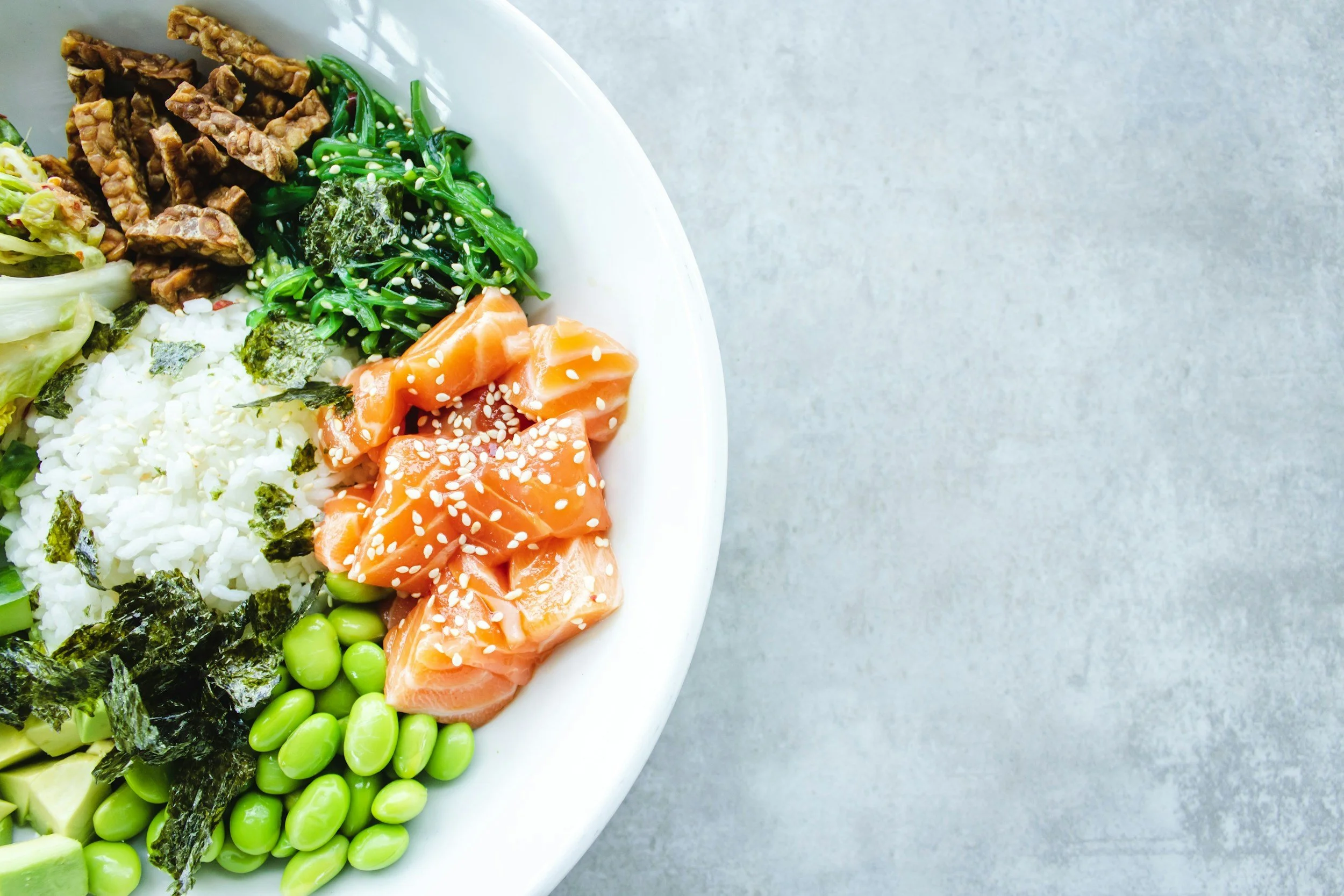Perimenopause Nutrition Support
How to Support Your Body Through the Transition
Perimenopause and the years leading up to menopause can feel like a hormonal rollercoaster. Hot flushes, disrupted sleep, mood swings, weight gain and fatigue are just a few of the symptoms many women experience as their oestrogen levels begin to decline.
But did you know that what you eat during this time can make a real difference?
At Your Nutrition, we understand the changes happening in your body and how nutrition can support you through this phase. Here’s what the latest research tells us about how to eat well during perimenopause and why it's never too early to start.
1. Phytoestrogens: Nature’s Hormone Helpers
Phytoestrogens are natural plant compounds that mimic the effects of oestrogen in the body. Including them in your diet may help reduce the intensity of perimenopausal symptoms like hot flushes.
Top phytoestrogen sources:
Ground flaxseeds (linseeds) – aim for 10g (about 1 tbsp) per day
Whole soy foods – soybeans, edamame, tofu, tempeh, soy milk made from whole soybeans (e.g. Vitasoy, Bonsoy)
The research:
A study found that 10g flaxseeds daily for 3 months significantly reduced perimenopausal symptoms. (Ref: https://pmc.ncbi.nlm.nih.gov/articles/PMC11953605/)
½ cup of soybeans per day for 12 weeks led to an 84% reduction in moderate to severe hot flushes (Ref: https://pubmed.ncbi.nlm.nih.gov/34260478/)
2. Protein: Muscle Matters More Than Ever
As oestrogen and testosterone decline, women can lose up to 10% of muscle mass during perimenopause. This loss not only affects strength and metabolism but can also lead to unwanted fat gain.
Protein needs increase to 1.2–1.6g per kg of body weight - That’s more than the average woman usually eats!
💪 Combine a high-protein diet with strength training at least twice per week to help maintain muscle, support energy levels and reduce weight gain.
3. Calcium and Bone Health
Bone density can decrease rapidly during perimenopause. Ensuring adequate calcium is essential for maintaining strong bones and preventing fractures later in life.
Under 50 years? You need 1000mg calcium/day = ~3 serves dairy
Over 50 years? Increase to 1300mg/day = ~4 serves dairy
Sources of calcium include:
Dairy milk, yoghurt, cheese
Calcium-fortified plant milks and yoghurts
Sardines or salmon with bones
Calcium-set tofu (check for Calcium sulfate 516 or Calcium chloride 509 on the ingredients list)
Don’t forget: Vitamin D helps your body absorb calcium — get your levels checked with your GP.
4. Choose Low GI Carbs for Energy & Blood Sugar Control
Feeling sluggish, irritable, or craving sugar? Switching to low GI (glycaemic index) carbs can help stabilise blood sugars and keep you fuller for longer.
Look for:
✔ Wholegrain breads and cereals
✔ Rolled oats
✔ Sweet potato
✔ Legumes and lentils
✔ Brown long-grain rice and quinoa
📎 Check out this Low GI factsheet from the Baker Institute for more food ideas: https://www.baker.edu.au/health-hub/fact-sheets/carbohydrates-gi
5. Magnesium: The Unsung Hero of Perimenopause
Oestrogen helps regulate magnesium, so as levels decline, magnesium deficiency symptoms may show up including sleep issues, muscle cramps, migraines, anxiety, and constipation.
Magnesium may help with:
Improved sleep and relaxation
Reduced headaches and muscle pain
Better blood glucose control
Calmer moods
Regular bowel movements
Supplement forms to consider:
Glycinate – for sleep, stress, and anxiety
Citrate – for constipation
L-threonate – for mood, memory, migraines
Taurate – for blood sugar balance and relaxation
(Always speak to your dietitian or GP before starting a supplement.)
6. Omega-3s: For Hormones, Joints, Mood and More
Omega-3 fatty acids are vital for heart health, mood regulation, joint comfort, and reducing inflammation.
Aim for:
🐟 2-3 serves of fatty fish per week (e.g. salmon, sardines, mackerel)
📦 Or consider a high-quality EPA/DHA omega-3 supplement – 2g/day
Need Help with Perimenopause Nutrition?
Nutrition during perimenopause is not about restriction — it’s about nourishment and support.
An Accredited Practising Dietitian provides evidence-based, practical advice to help you feel more in control of your health, hormones, and wellbeing.
Book a consultation at Your Nutrition to receive a personalised nutrition guide tailored to your lifestyle, symptoms, and goals.
Phone: 0458 920 404 or Email hello@yournutrition.au

